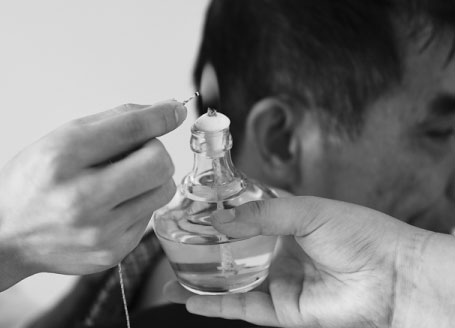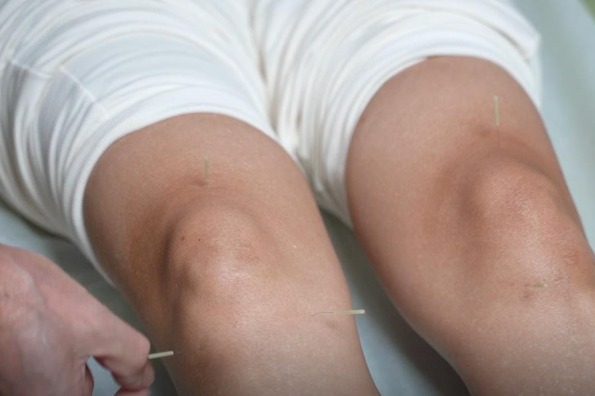Nanning hospital helps Zhuang traditional medicine flourish


A patient receives treatment at the Guangxi International Zhuang Medicine Hospital in Nanning, Guangxi Zhuang autonomous region. [Photo by Lu Boan/Xinhua]
Pharmacist Pham Thi Thai Hoa carefully checks the prescription and, in fluent Chinese, tells the patient how to take the medicine.
They always take it for granted that she is Chinese, but the 32-year-old is from Vietnam.
"I have been in China for almost 14 years, and I have been working in this hospital for nearly a year," Hoa said. "The patients are surprised to learn that I am a Vietnamese, but I understand, because foreign doctors rarely worked in China before."
Hoa works at the Guangxi International Zhuang Medicine Hospital in Nanning, capital of Guangxi Zhuang autonomous region. She was recruited shortly after gaining her doctoral degree at Guangxi Medical University last year.
The Zhuang, the second-most populous ethnic group in China, mostly live in Guangxi, the only autonomous region in South China. A year after the founding of the hospital, their traditional medicine, developed over a thousand years, is now spreading and flourishing.
Construction of the hospital, a major livelihood project in Guangxi, began in 2015. Its opening three years later coincided with the 60th anniversary of the establishment of the autonomous region.
"The regional government has always treasured Zhuang medicine," said Tan Yuwang, the director of the hospital. "In 1985, an institute specializing in ethnic medicine was established in Guangxi. Twenty years later, based on the experience and knowledge gained from the institute, Guangxi Medical University decided to set up this hospital, and with government support it took only three years to complete the project."
Positioned as an all-around and modern international ethnic hospital, it integrates multiple functions, including medical treatment, teaching, scientific research, rehabilitation, healthcare and adult education. It is devoted to providing training in Zhuang and Yao medicine, the cultural inheritance of ethnic medicine and international exchanges.
The hospital employs 50 renowned traditional Chinese medicine experts, and it has 46 clinical and medical departments and two national key specialties recognized by the State Administration of TCM: rheumatology and Zhuang medicinal massage.
"Our hospital covers a total area of 20 hectares and has 1,000 inpatient beds," Tan said. "Based on traditional Chinese medicines, we focus on spreading the medical traditions of the Zhuang and Yao ethnic groups."
Zhuang medicinal resources such as cinnamon, aniseed and honeysuckle have good prospects for development, and specialists have also paid great attention to the development and comprehensive use of pseudo-ginseng, a ginger-like herb that can promote blood circulation.
The region is home to more than 4,000 traditional medicines, mostly herbs but also products derived from animals and minerals. Zhuang doctors commonly use as many as 700 traditional medicines.
"Now, in our hospital, modern experimental methods and technologies for disease diagnoses have accelerated the modernization of Zhuang medicine," Tan said.
Guangxi plays an important role in the Belt and Road Initiative, and the hospital is focusing on cooperation and exchanges with members of the Association of Southeast Asian Nations. It has signed cooperation agreements with hospitals in Vietnam, Thailand, Laos and Singapore.
It also organizes annual training courses. The first one, held last year, invited 27 doctors from five countries to Nanning for medical exchanges and to learn Zhuang medicine.
"We have had 260 foreign patients come to our hospital, and the number is increasing," Tan said. "We provide our best medical services to all patients, no matter where they are from.
"As we know there are many Muslims in ASEAN countries, the hospital provides a prayer room for them. We respect different cultures."
Hoa said she was one of two foreign doctors working at the hospital.
"We are very happy and grateful that we have the opportunity to work here," she said. "Work with my Chinese colleagues is really enjoyable, so I want to stay here as long as I can."




